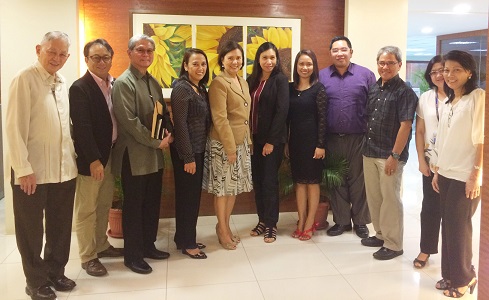The Chemicals Masterplan, the blueprint that details the vision, mission, objectives, current situation, strategies, action plans and programs of the Philippine chemicals industry, will be updated to keep up with the latest developments in the sector and map out programs that will further propel and sustain the growth and development of the industry.
The updated version will have separate roadmaps for each sub-sector and will also specify R&D programs in collaboration with the Department of Science and Technology, as well as a more focused and strategic investment promotions plan, and capacity-building for the Chemicals Technical Working Group members.
“The current Masterplan needs to be revisited to clearly define the strategies and identify which action agenda will be prioritized especially those that have valuable impact on the industry. Having all of these detailed in the Masterplan will enable the industry to sustain growth and generate quality job opportunities for Filipinos,” said Trade Undersecretary and BOI (BOI) Managing Head and Ceferino Rodolfo, adding that action plans to further strengthen industry-academe collaborations needs to be included in the Masterplan.
Last month, the BOI facilitated a meeting of various stakeholders in the chemicals industry to discuss and generate ideas on how to further improve the current Chemicals Masterplan and identify opportunities and needs for further studies.
Photo shows the participants in the Meeting on Updating the PH Chemicals Masterplan (from left to right): Meneleo Carlos, Jr., Chairman Emeritus of the Federation of Philippine Industries (FPI), Roberto Batungbacal, Country Manager of Dow Chemicals Philippines, Dr. William Padolina, former President of the National Academy of Science and Technology (NAST), BOI Director EvaristeCagatan, EvelinaPatiño, President and CEO of Cocochem, Dr.Rizalinda De Leon, Dean of the UP College of Engineering, Gretchen Enarle, SPIK President, Dr. Terence Tumolva, Chair – UP Department of Chemical Engineering , Dr. Fabian Dayrit, current Acting President of NAST, Lolit Reyes of BOI, and Carolina Carlos, General Manager of RI Chemical Corporation.
During the meeting co-chaired by Dir. Evariste Cagatan of BOI Manufacturing Industries Service and Roberto Batungbacal, Country Manager of Dow Chemicals Philippines, the Global Value Chain (GVC) Study prepared by the Duke Center on Globalization, Governance and Competitiveness in May 2016 was discussed. This study identified oleochemicals’ potential in the GVC recognizing that oleochemicals are among the top 10 chemical export products of the Philippines. Coconut oil, one of the country’s vital assets, is considered as the backbone of the oleochemicals industry; but since palm kernel oil is cheaper, it is currently widely used as a substitute. The Philippine oleochemical industry is regaining its status as recognized source of natural, renewable and sustainable coconut- derived oleochemicals.
“The results of the GVC study will be considered in updating the Masterplan,” Director Cagatan said, adding that the industry also plans to conduct other studies that would better harness the potential of the industry. As the demand for environmentally-friendly chemical products increases over time, the Masterplan will also include the industry’s initiative on creating a Philippine Chemical Branding Strategy incorporating green chemicals.
Meanwhile, Evelina Patiño, President and CEO of Cocochem said that palm plantations in Indonesia and Malaysia can only produce about 30 percent of the required sustainable materials. “Given this, there is a potential for the Philippines to supply the missing 70 percent of sustainable feedstock but presently, the industry is not yet ready due to insufficient production capacity. In order to increase productivity for coconut production, coconut tree planting should be done aggressively but the viability of palm kernel oil as a cheaper alternative should also be explored further,” she said.
The Chemicals Industry in its 2013 Masterplan submitted to the BOI through its Industry Roadmapping Project, envisions the sector to be the country’s third largest export sector with US$30 Billion worth of exports by 2030.



